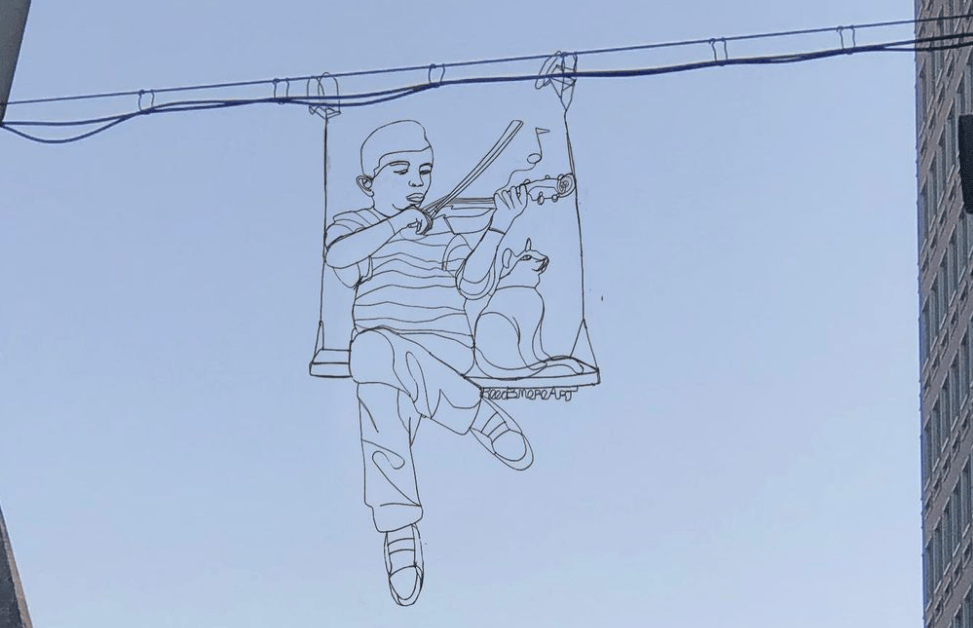Just blocks away from the Colorado State Capitol building -- the site of this summer's protests against police violence, a new work of art made its surprise debut during Thanksgiving weekend. It wasn't the typical building-sized mural or statue. Instead, onlookers would have to look up to see the latest clandestine creation of wire street artist Reed Bmore. The artist gave Denver a tribute to Elijah McClain, the young Black man who died at the hands of Aurora police and paramedics trying to sedate him last year -- although he had committed no crime.
"It's just extremely sad," Bmore said. "Even going through all the events that happened like this past year, that was really kind of like the nail in the coffin for a lot of people."
Bmore, who's traveling with his quarantine pod, stopped through Denver on his way out West.
"I do a lot of my traveling through Google maps and site planning. So when I saw the image from the Google street view, I'm seeing the state capitol in the background, and I just thought that it was like a very beautiful sky." He eventually settled on a location at 18th Avenue and Sherman Street.
Bmore, whose high-flying works have dotted cities like Philadelphia and his home base in Baltimore over the past several years, generally focuses on lighthearted wire renderings of animals or pop culture figures. However, Bmore said this latest work fits right in with his style.
"A lot of my pieces revolve around showing tenderness around living out your childhood nostalgia and aspects like that. I always put them on swings, so that's kind of how everything has gone together."
As Black Lives Matter protests spread across the country in the wake of George Floyd's death in Minneapolis, more people learned about the life and August 2019 death of Elijah McClain. This past August, roughly 300 people commemorated McClain's life through music and dance. Bmore is one of many artists moved by McClain's story to create a tribute in response.
"I want people to step back away from the artwork into the like greater conversation about how things in society are right now in America, the injustice and unfairness, and really figure out how they've lived their lives and have been grateful for the things that they've received," he said. "I realized that a lot of people on the other end of that don't have those benefits."











